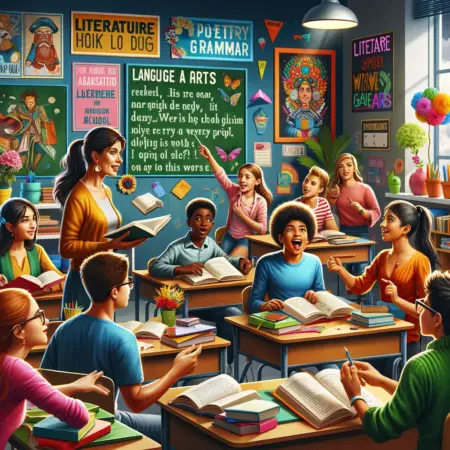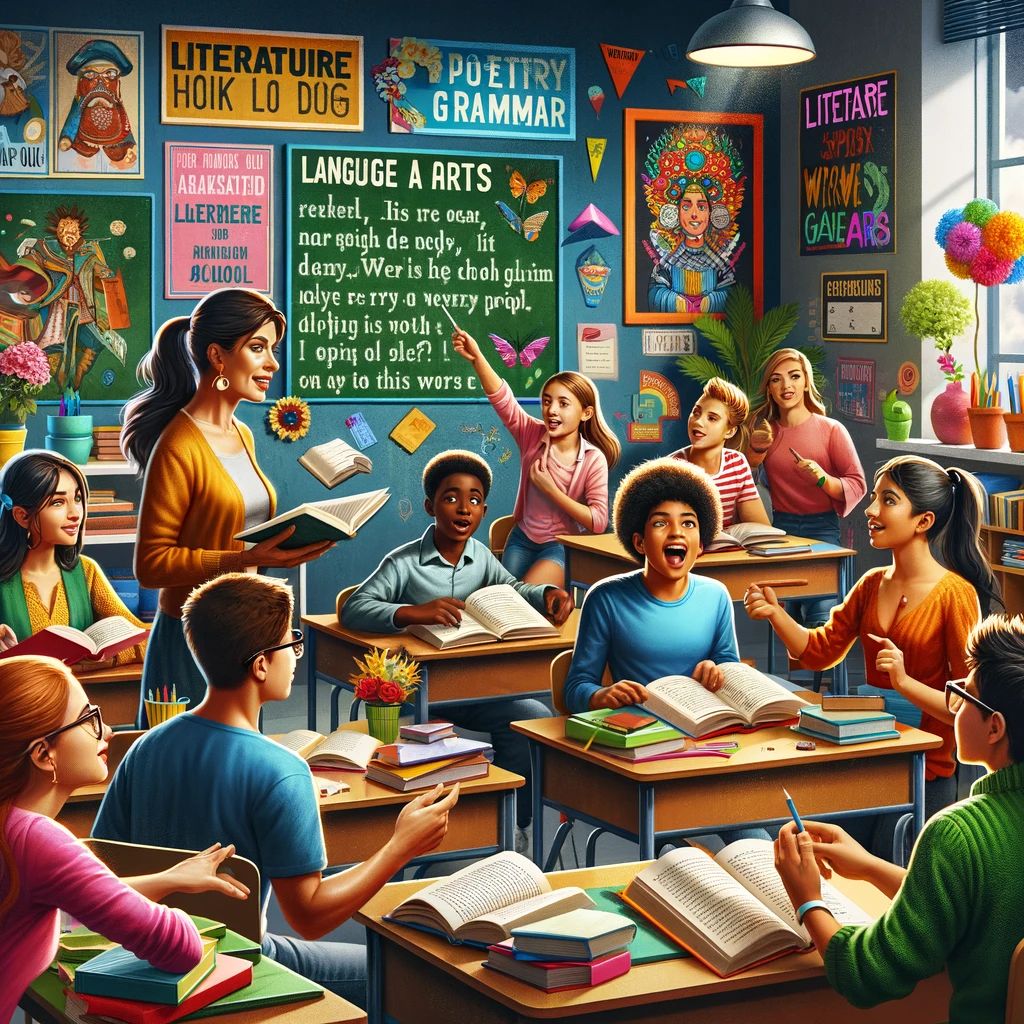Language Arts, encompassing reading, writing, speaking, listening, and viewing, is a cornerstone of education and personal development. It is the bedrock upon which we build our capacity to communicate, express ourselves, and understand the world around us. Here’s an exploration of why Language Arts is such a critical component of education.
Importance Of Language Arts In Education.

Fosters Communication Skills
At the heart of Language Arts is the development of communication skills. Students learn how to articulate their thoughts and ideas clearly and effectively. This is not just about grammar and vocabulary; it’s about being able to convey messages in a coherent, persuasive manner. Strong communication skills are essential not just for academic success but for professional and personal interactions as well.
Enhances Critical Thinking
Language Arts education encourages students to analyze texts, discern themes, and evaluate arguments. This process sharpens critical thinking skills, which are indispensable in just about every field of study and sector of employment. Being able to think critically about the information presented to them allows individuals to make informed decisions and contribute meaningfully to discussions.
Promotes Cultural Literacy
Through literature, students are exposed to a variety of cultures, historical periods, and perspectives. This exposure is invaluable in fostering empathy and cultural literacy, equipping students to function better in an increasingly globalized world. Understanding diverse viewpoints through the written word can break down barriers and foster a more inclusive society.
Encourages Creativity
Creative expression is a key aspect of Language Arts. Whether it’s through creative writing, interpreting literature, or producing multimedia content, students are encouraged to use their imagination and express themselves creatively. This aspect of education can spark a passion for the arts and can lead to innovation in various fields.
Supports Academic Success Across Disciplines
Language Arts skills are not confined to English classrooms; they support academic success across the curriculum. Whether it’s writing lab reports in science, analyzing historical documents in social studies, or interpreting word problems in math, strong language skills are fundamental to understanding and excelling in other subjects.
Aids Emotional Intelligence and Self-expression
The ability to express one’s thoughts and feelings is crucial for emotional health and relationships. Language Arts helps students develop a vocabulary for their emotions, facilitating better self-expression and communication. Reading and discussing characters’ experiences in literature can also help students understand and articulate their own emotions.
Builds Lifelong Learning Habits
Reading and writing are activities that extend beyond school. They are habits that can lead to lifelong learning. Individuals who engage regularly with texts stay informed, continue to develop their understanding of language, and often pursue personal growth.
Prepares for the Workforce
In the job market, employers consistently rank communication as one of the most sought-after skills. Whether it’s writing reports, giving presentations, or simply emailing colleagues, effective language skills are crucial. Language Arts education lays the foundation for these skills.
Encourages Democratic Participation
A democracy thrives on informed and engaged citizens. Language Arts education cultivates these citizens by teaching them to read critically, write persuasively, and engage in meaningful dialogue. It prepares students to actively participate in civic life, from voting to community service to public debate.
The importance of Language Arts in education can be summarized in a tabular format that outlines key aspects and their benefits. Here’s a simplified version:
| Aspect of Language Arts | Importance in Education |
|---|---|
| Reading Skills | Enhances comprehension, expands vocabulary, and fosters critical thinking. |
| Writing Skills | Develops clear communication, improves expression, and encourages creativity. |
| Listening Skills | Promotes better understanding, improves attention to detail, and aids in information retention. |
| Speaking Skills | Boosts confidence in verbal expression, aids in effective communication, and is essential for presentations and discussions. |
| Literary Analysis | Develops critical thinking, understanding of different perspectives, and appreciation of literature. |
| Grammar and Syntax | Essential for clear and correct communication, both written and verbal. |
| Vocabulary Expansion | Enhances overall language proficiency, aids in better expression and comprehension. |
| Creative Expression | Encourages creativity, personal expression, and empathy through storytelling and poetry. |
Each of these aspects plays a crucial role in developing a student’s overall language proficiency, critical thinking, and communication skills, which are essential for academic success and personal growth.
Conclusion
In summary, Language Arts is not just another subject in the school curriculum; it is a vital field of study that impacts every facet of life. It is the channel through which we explore the depths of human experience, the means by which we develop essential skills for living in society, and the method by which we convey our innermost thoughts and innovations. As education evolves with technology and societal changes, the core importance of Language Arts remains steadfast, nurturing not just students, but future leaders, thinkers, and creators.
